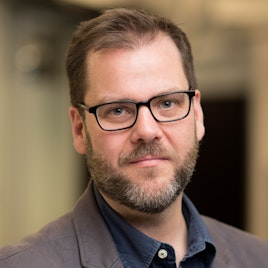On Democracy in New Orleans—and America
By Thomas Hilbink
Since the shootings in Tucson, there have been widespread discussions about the state of our democracy. Can we be more civil? How do we resolve differences and solve common problems? I have had moments of despair, questioning whether things are too far gone and if people are too overwhelmed or tuned out to engage in the democratic process and shape the futures of our communities and nation. But my worries were assuaged at a meeting on a proposed new jail last week in New Orleans.
The meeting was at the St. Maria Goretti Center in a largely residential area known as New Orleans East. A drainage canal running down the middle of the avenue and an abandoned shopping center were the only reminders that you were still in New Orleans; otherwise, it could have been any quiet American suburban enclave.
But the center was full of signs of life. Its parking lot was filled with rows of cars, and when I walked into the main room there were people stretched out on yoga mats finishing up a class. I skirted my way between them heading for the meeting I had come for. I entered the packed room where local residents were engaging with three members of the mayor’s working group on the proposed jail.
A little background: This past July, New Orleans Sheriff Marlin Gusman was just weeks away from getting approval to build a new 8,000-bed jail for the city. According to national averages, given its size New Orleans should have an 800-bed jail. But the city has long been a leader in over-incarceration. For decades, the sheriff’s office has been run like a kingdom, and a per diem system has given the “king” a significant incentive to lock up as many people as possible every day.
Given the political and financial power of the sheriff, few opposed his request for a new jail. The city council and mayor had long acceded to whatever demands he made, requiring little transparency or accountability. But this time a small group of dedicated criminal justice reformers refused to stay silent. When word of the new jail proposal got out, they quickly organized to press the city council to delay a vote on the 8,000-bed plan, reviving the Orleans Parish Prison Reform Coalition to coordinate the effort (download pdf statement). That group recruited the New Orleans Coalition on Open Governance (NOCOG; an Open Society grantee) as a partner, seeing NOCOG as a valuable new voice to demand a more transparent, data-driven decision-making process.
Those 11th-hour efforts paid off. The city council refused to approve the sheriff’s plan. Then, Mayor Mitch Landrieu formed a working group to study the issue and make recommendations about an appropriate jail size for the city. Since then, the reform efforts have intensified with well-coordinated organizing, research, and advocacy activities. The New Orleans East meeting was one result of that hard work.
Hosted by Neighborhoods Partnership Network (NPN; also an Open Society grantee), the meeting sought to help educate and engage community members on the jail issue. In addition to dozens of neighborhood residents were veteran criminal justice advocates such as Norris Henderson of Voice of the Ex-Offender (VOTE; another of our grantees), local representatives, and a member of the sheriff’s staff.
Some around the room were hungrily digesting pamphlets with data about the city’s incarceration rate, comparative data about jails in other cities, and other relevant information. Others were reading a special issue of The Trumpet (download pdf), an NPN-edited newspaper, dedicated to the jail issue and explaining why the issue matters whether people are concerned about public safety, education, or social justice. A local elected official defended the sheriff as a good man, but allowed that he might be wrong on this issue. Most powerfully, one attendee after another spoke from the heart about the impact of over-incarceration, inhumane jail conditions, and unjust, ineffective criminal justice policies on them, their families, and their communities. All was done with respect for varied opinions and a shared desire to make a decision based on the best information and knowledge rather than on fear—an emotion that has too long ruled criminal justice policy here as elsewhere.
On my way out, I paused to say hello to the woman at the sign-in table, an NPN organizer. “What did you think?” she asked. I found myself unexpectedly choking up. “This is what democracy looks like,” I replied. “This is America at its best.”
Whatever happens in the halls of Congress or the streets of Washington (or the parking lots of Tucson) does not constitute the sum total of our democracy. Democracy happens in unadorned meeting rooms on quiet corners in New Orleans East and beyond.

Until June 2022, Tom Hilbink was the director of the Grant Making Support Group.